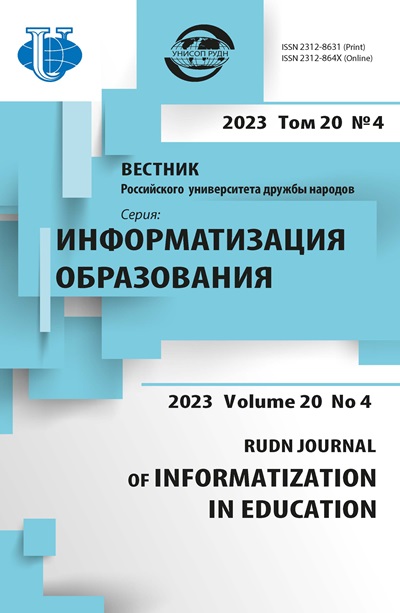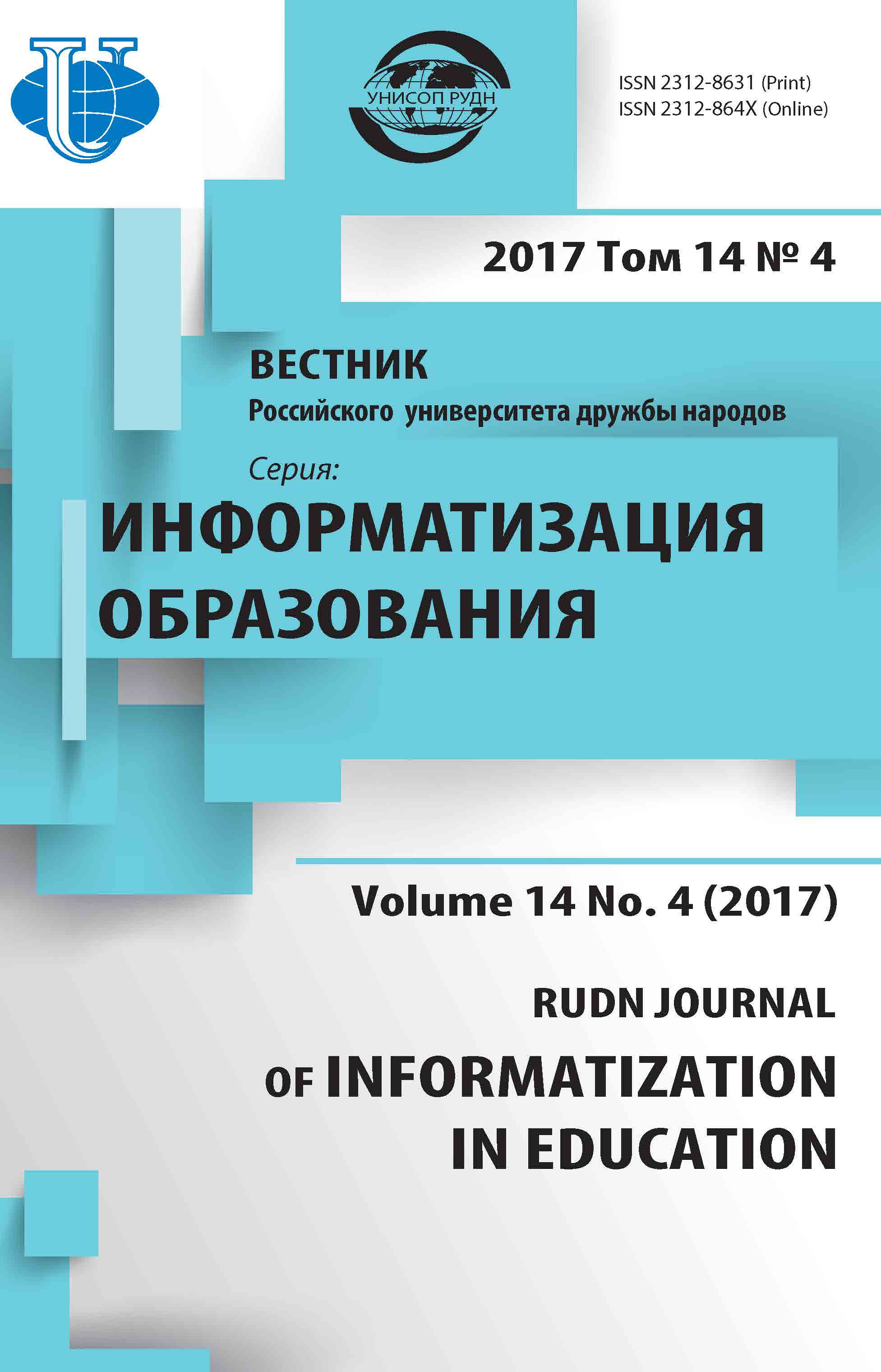ANALYSIS OF THE TEACHERS’ INVOLVEMENT IN THE DISCUSSION OF THE APPLICATION OF THE FEDERAL STATE EDUCATIONAL STANDARDS VIA ONLINE RESOURCES
- Authors: Vachkova SN1, Chekalina AA1
-
Affiliations:
- Moscow City University
- Issue: Vol 14, No 4 (2017)
- Pages: 452-462
- Section: INTERNET SUPPORT OF PROFESSIONAL DEVELOPMENT OF TEACHERS
- URL: https://journals.rudn.ru/informatization-education/article/view/17354
- DOI: https://doi.org/10.22363/2312-8631-2017-14-4-452-462
Cite item
Full Text
Abstract
This article presents the research results of the teachers’ involvement extent in current problems emerging in educational activities. The paper discusses the concept of involvement, its functions and scientific approaches to its analysis; suggests the original definition and structure of this concept, describes the chosen methodology of its analysis, database research and the nature of the sample, analysis tools. The base of the present research was the Internet portal “Public expertise of normative documents in education”. There is a detailed description of quantitative results, the indicators of teachers’ participation in discussing problems of education in relation to normative educational documents of Federal state educational standards of primary, basic and secondary general education. The research results showed the indicators of teachers’ activity and the expressed problems in application the Federal state educational standards.
About the authors
S N Vachkova
Moscow City University
Author for correspondence.
Email: svachkova@gmail.com
Vackova Svetlana Nikolaevna, doctor of pedagogical sciences, associate professor, director of the Institute of system projects of the Moscow city pedagogical university.
2-y Selskokhozyastvenny str., 4, Moscow, Russia, 129226A A Chekalina
Moscow City University
Email: chekalina@inbox.ru
Chekalina Angelina Anatol’yevna, candidate of psychological sciences, associate professor, department of educational psychology institute of pedagogy and psychology of education of Moscow city pedagogical university.
2-y Selskokhozyastvenny str., 4, Moscow, Russia, 129226References
- Lipatov S.A. Problema vzaimodejstvija cheloveka i organizacii: koncepcii i napravlenija issledovanij [The Problem of human interaction and organizations: concepts and research directions]. Vestnik Moskovskogo Universiteta [The Moscow University Herald. Series 14. Psychology]. 2012. No. 1. Pp. 85—96.
- Obshhestvennaja jekspertiza normativnyh dokumentov v oblasti obrazovanija [Public examination of normative documents in the field of education]. URL: http://edu.crowdexpert.ru/
- Onuchin A. Vovlechennost’ personala, ot izmerenija k upravleniju [Involvement of staff, from measurement to control]. ECOPSI. URL: http://www.ecopsy.ru/publikatsii/vovlechennostpersonala-ot-izmereniya-k-upravleni.html
- Baumruk R. (2004) The missing link: the role of employee engagement in business success. Workspan. Vol. 47. Pp. 48—52.
- Cropanzano R., Mitchell M.S. (2005) Social exchange theory: an interdisciplinary review. Journal of Management. Vol. 31. Pp. 874—900.
- Frank F.D., Finnegan, R.P., Taylor C.R. (2004) The race for talent: retaining and engaging workers in the 21st century. Human Resource Planning. Vol. 27. No. 3. Pp. 12—25.
- Kahn W.A. (1990) Psychological conditions of personal engagement and disengagement at work. Academy of Management Journal. Vol. 33. Pp. 692—724.
- Truss C., Soane E., Edwards C., Wisdom K., Croll A., Burnett J. (2006) Working Life: Employee Attitudes and Engagement. London, CIPD.
















